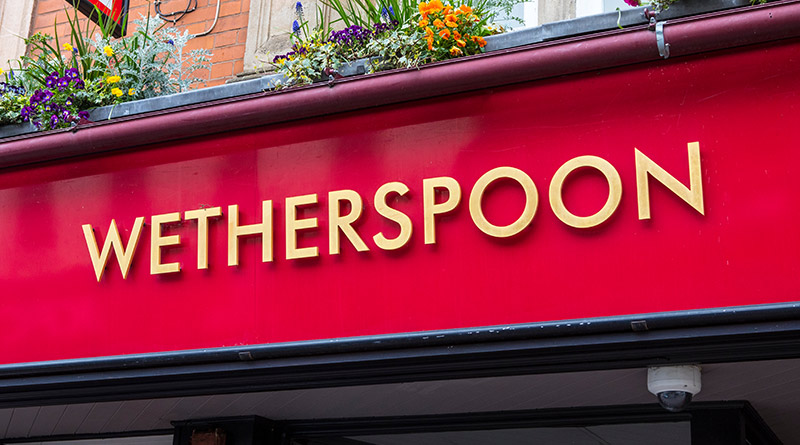Wetherspoon Sales Increase 5.7% As Revenue Tops £2bn

Pub group JD Wetherspoon has revealed that strong customer demand helped boost revenues. Total sales in FY24 were £2,036 million, an increase of 5.7%, compared to FY23.
The company revealed that pre-tax profits jumped by 73.5% to £73.9 million for the year to July 28, compared with the previous year.
Tim Martin, the chairman of JD Wetherspoon, said: “Sales continue to improve. In the last nine weeks, to September 29 2024, like-for-like sales increased by 4.9%. The company currently anticipates a reasonable outcome for the current financial year, subject to our future sales performance.”
The companies trading summary revealed that:
• LFL sales were stronger than total sales due to a small number of pub disposals and lease terminations.
• Operating profit, before separately disclosed items, was £139.5 million (2023: £107.1 million).
• The operating margin before separately disclosed items, was 6.9% (2023: 5.6%).
• Profit, before tax and separately disclosed items, was £73.9 million (2023: £42.6 million).
• In the period, the company sold eighteen pubs and terminated the lease of an additional nine pubs.
• This gave rise to a
• cash inflow of £8.9 million.
• There was an exceptional loss on disposal of approximately £13.4 million, recognised in the income statement, relating to these pubs.
The company also highlighted in its preliminary statement the disparity between VAT in pubs and supermarkets, saying: “As we have previously stated, the government would generate more revenue and jobs if it were to create tax equality among supermarkets, pubs and restaurants.”
“Supermarkets pay virtually no VAT in respect of food sales, whereas pubs pay 20%. This has enabled supermarkets to subsidise the price of alcoholic drinks, widening the price gap, to the detriment of pubs and restaurants.”
“Pubs also pay around 20 pence a pint in business rates, whereas supermarkets pay only about 2 pence, creating further inequality. Pubs have lost 50% of their beer sales to supermarkets in the last 35 or so years. It makes no sense for supermarkets to be treated more leniently than pubs, since pubs generate far more jobs per pint or meal than do supermarkets, as well as far higher levels of tax.”
“Pubs also make an important contribution to the social life of many communities and have better visibility and control of those who consume alcoholic drinks.”
“Tax equality is particularly important for residents of less affluent areas, since the tax differential is more important there – people can less afford to pay the difference in prices between the on and off trade.”
“As a result, in these less affluent areas, there are often fewer pubs, coffee shops and restaurants, with less employment and increased high-street dereliction. Tax equality would also be in line with the principle of fairness – the same taxes should apply to businesses which sell the same products.”
